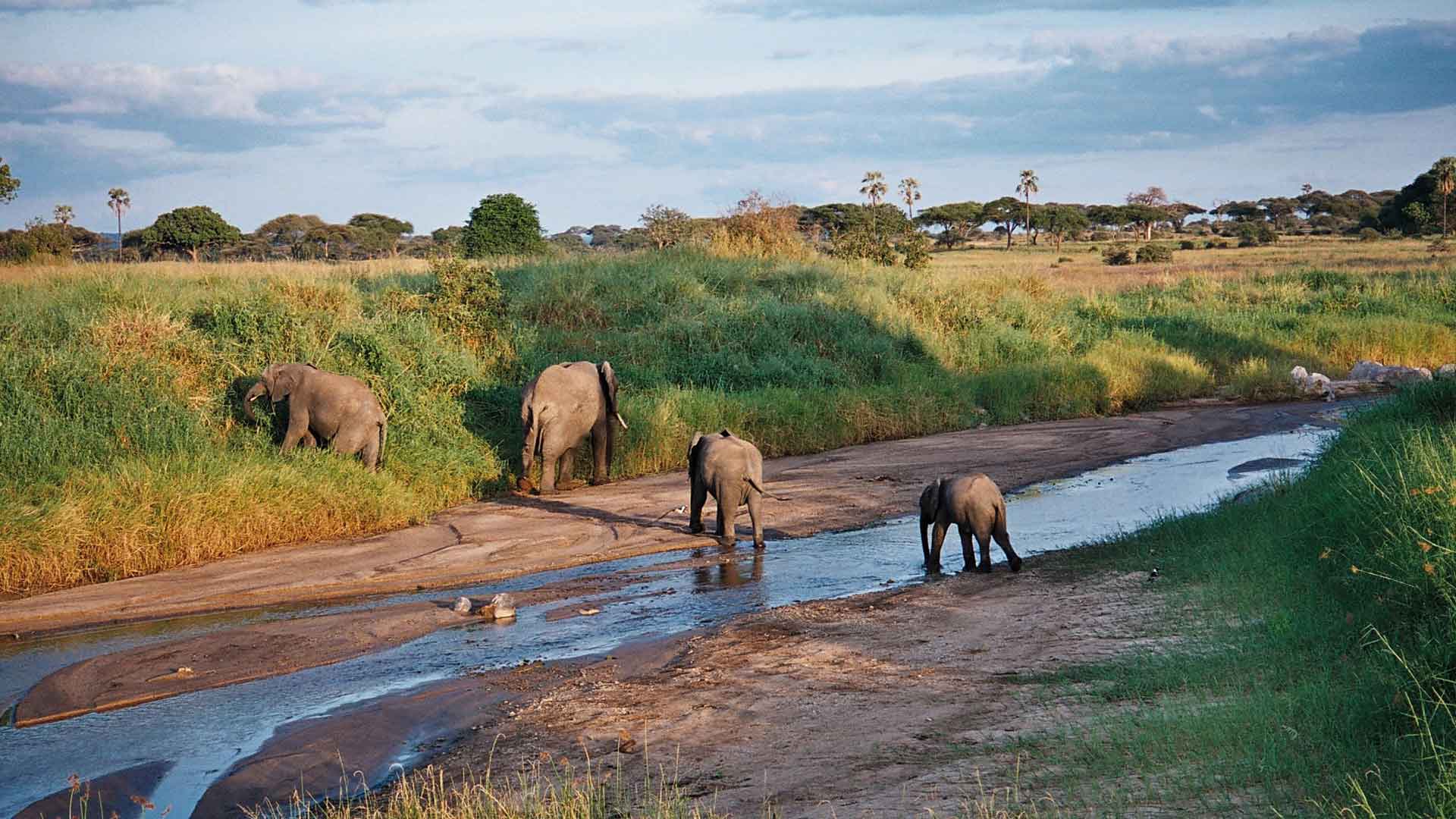Tarangire National Park
Tanzania Destinations | northern circuit
It is the vast number of baobabs that first capture the eye as you enter Tarangire National Park. The gently rolling countryside is dotted with these majestic trees, which seem to dwarf the animals that feed beneath them.
Location of Tarangire National Park
It is 120 km from Arusha, bordered by the Tarangire Wildlife conservation area to the northeast, an area set apart by the government, to cater for the needs of the local people as a grazing ground for their herds.
Geography
Tarangire National Park owes its name to the Tarangire River, which flows across the area. It is characterized by dense vegetation of acacia and mixed woodland, the area around the river, however, is dominated by huge baobab trees and old doum palm trees to a lesser prominence, as well as black cotton grass. Though it is not as famous as other parks in the north, Tarangire offers the same attractions as other parks in the north. Its unique aspect is the annual animal immigration that takes place during the dry season.
Animal Migration
While Serengeti’s animal migration has attained mundane fame, for many tourists, little is known of the Tarangire annual migration. The difference with Serengeti, however, is that in Serengeti National Park, animals migrate away from the park during the dry season (June to October), the opposite happens here; animals migrate from Maasai Steppe to the park during the dry season. They migrate to the park in search of water, which is provided by the river, and predators migrate along in search of prey. During this period the park has the largest concentration of animals in any park in northern Tanzania.
Wildlife of Tarangire
June to October is the best time to see the large number of wildebeests, elephants, zebras, and hartebeests. Not all animals are migratory though, other animals such as giraffes, Impala, Eland, lesser kudu, waterbuck, gazelle and sometimes rhinos or leopards can be seen throughout the year. More people are attracted by the giant pythons and large herds of elephants. the park is also famous for migrant birds.








